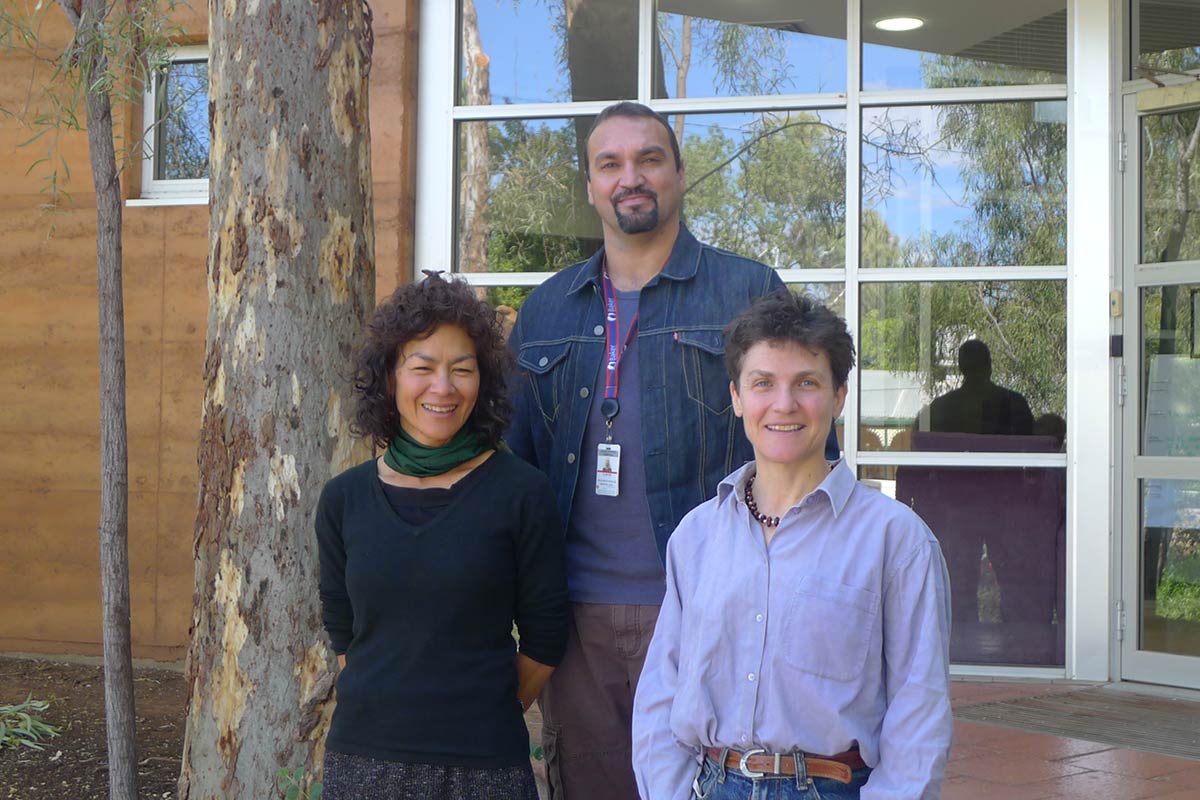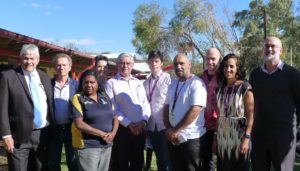

An innovative health science centre in Alice Springs has become the first Aboriginal-led collaboration to receive formal Federal Government recognition for delivery of regional health research and improved evidence-based health care.
In Alice Springs, the Federal Minister for Indigenous Health and Aged Care Ken Wyatt announced that the Central Australia Academic Health Science Centre (CAAHSC) will be recognised as a national Centre for Innovation in Regional Health by Australia’s peak funding body for medical research, the National Health and Medical Research Council (NHMRC).
The research initiative, covering an area of more than 1 million square kilometres, will assist some of the most disadvantaged communities in Australia.
“This well-deserved recognition has been won through landmark research, ranging from strategies to combat diabetes in pregnancy and viral infections to the impact of remote art centres on community health,” Mr Wyatt says, who also announced $225,000 in seed funding from the Medical Research Future Fund’s Rapid Applied Research Translation program.
The Centres for Innovation in Regional Health are one of two new types of collaborative research organisations to share in the Medical Research Future Fund’s $10 million Rapid Applied Research Translation program.
To be successful in their bid, the 11-member consortium which includes Flinders University and its Poche Centre and Centre for Remote Health in the Northern Territory, was required to demonstrate competitiveness at the highest international levels across all relevant areas of health research and translation of research findings into health care practice.
The Centre is already operating at a high international standard, joining the likes of the South Australian Academic Health Science and Translational Centre based in Adelaide, says Flinders NT Associate Dean Professor John Wakerman.
“I also think it’s a great credit to Flinders that it’s now part of two academic health science centres – the SA Academic Health Science collaboration and now the Centre for Innovation in Regional Health in Central Australia,” Professor Wakerman says.
“Aboriginal leadership of the Centre is a critical component to ensure that research improves access to services and improves health outcomes for some of the most disadvantage populations in Australia.”
The CAAHSC, whose members include Aboriginal community groups, universities, government health services and other research institues started in 2014 to improve collaboration across the sectors in support of health.
CAAHSC chief executive Ms Donna Ah Chee, from the Central Australian Aboriginal Congress, says the initiative is important for Aboriginal people to take the lead in identifying and defining viable solutions for the health inequities experienced in the Central Australia region.
Since 2014, the collaboration between local health services and the academic partners has made inroads into implementing applied research in areas of need to improve health services, including better antenatal care, chronic disease management including diabetes, and high self-discharge rates from hospital.
“One of the clear innovations that our centre already offers is acknowledging that the principle of Aboriginal community control is fundamental to research, university and health care partnerships with regional and remote Aboriginal communities,” Ms Ah Chee says.
The CAAHSC partners have a successful track record of working together on projects such as:
- A study that examined high rates of self-discharge by Aboriginal patients at the Alice Springs Hospital, which in many cases can lead to poor health outcomes. This research was used to develop a tool to assess self-discharge risk which is now routinely used in care, and to expand the role of Aboriginal Liaison Officers within the hospital.
- Another collaborative project designed to address the rising rates of diabetes in pregnant women involves the establishment of a patient register and birth cohort in the NT to improve antenatal care in the Aboriginal population.
CAAHSC chairman Mr John Paterson, CEO of the Aboriginal Medical Services Alliance Northern Territory (AMSANT), says the consortium reflects the importance of Aboriginal leadership in successful research and health improvement in Central Australia.
He expects the initiative will help to attract more researchers and health workers to Central Australia, new funding opportunities, and engage more Aboriginal people in medical education, research and health care delivery.
The CAAHSC joins an elite group of Australian academic health science centres that have so far all been based in metropolitan areas including Melbourne, Sydney and Adelaide. It also has collaborations including Imperial College Healthcare in the UK and Johns Hopkins Medicine in the US.
Partners of the CAAHSC include the NHMRC bid leaders – the Aboriginal Medical Services Alliance NT and Central Australian Aboriginal Congress – as well as Flinders University, the Poche Centre for Indigenous Health and Well-being and Centre for Remote Health (a Flinders and Charles Darwin University remote Australia collaboration), Baker Heart and Diabetes Institute, Charles Darwin University, Menzies School of Health Research, Central Australia Health Service (NT Health); CRANAplus and Ngaanyatjarra Health Service. https://centralaustraliaahsc.org/

